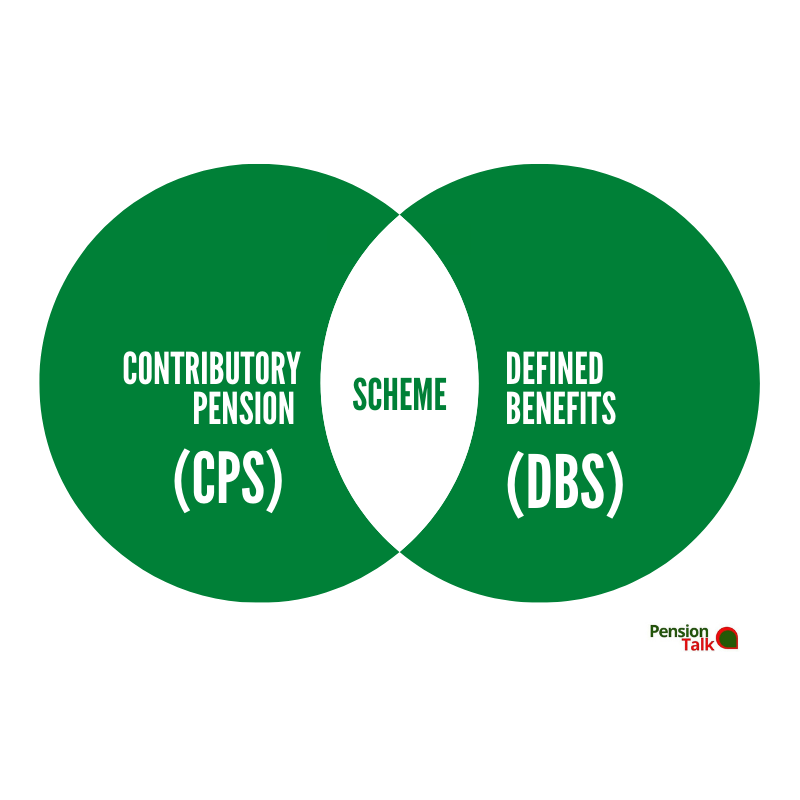By Moshood Ayeni
Nigeria operates a hybrid pension scheme at the moment. Although the plan is to gradually move a large portion of the population to the Contributory Pension Scheme (CPS), the Defined Benefit Scheme (DBS) is much prevalent, thanks to the non-commitment and absence of political will to make it a reality, especially at the State Government level.
The DB scheme which has been in operation as far back as the 1960s has been found to become a burden on the government expenditure with increasing budgetary allocation and spending yearly. Even with this spending, there are backlogs of pension arrears owed to pensioners whose gory experiences while trying to access their pension is nothing to write home about.
With all these happening, the government introduced the CPS in 2004, and one of the aim is to eliminate all the bad experiences occasioned by the DB scheme especially at it affects pension access. The CPS is also introduced to help reduce the burden on government gradually as her pension obligations would have been met on the employees even before their retirement, a major plus for the CPS over the DB scheme.
Another far reaching effect of the CPS is the inclusion of the private sector (formal and informal). With the huge participation of the private sector, it has helped broken the myth that pension is only possible for those working for government institutions alone.
WHAT ARE THE DIFFERENCES BETWEEN THE CPS AND DBS
Here are some of the major differences between the two pension schemes.
Contributory/Non-Contributory
The CPS is a contributory scheme, which means that a portion of what will constitute pension and retirement benefits is being contributed by the employer and the employee while the employee is still working. The minimum contribution by the employer (10%) and the employee (8%) is 18% of the workers emolument (Basic salary, Housing and Transportation allowances).
The DBS is non-contributory, which means that ONLY the employer is obligated to make contributions towards the settlement of the employee’s pension/retirement benefits. This can be done in any convenient way it deems fit as long as such obligations are met at retirement. In Nigeria, usually what is common practice is that the employer sets aside an amount yearly based on the expected obligations due to cater for the retirement benefits of its workers. For the government, they usually calculate the number of years the employee has worked and calculate the retirement benefits based on some agreed parameters and add such person to the list of pensioners in its payroll.
Portable/Non-Portable
The CPS enables each eligible participant to open a Retirement Savings Account (RSA) that is unique to the individual. This RSA can also be transferred from one Pension Fund Administrator (PFA) to another. This portability feature allows the RSA holder enjoy the freedom of choosing the best among the PFAs who will manage his pension assets.
The DBS on the other hand, doesn’t allow for this portability feature. Under the DBS, an employee’ s retirement benefits is locked up with his employer who remains the sole administrator of his retirement benefits.
Voluntary/Non-Voluntary
The DBS while largely established and compulsory in the public sector, is largely voluntary in the private sector. Under the DBS, it is those in the Public sector that mostly enjoyed its benefits, while those in the private sector are left at the mercies of their employer who may or may not operate a retirement scheme on their behalf.
The CPS, on the other hand is also compulsory both in the public and private sector. For the private sector, an establishment that has 15 or more workers is obligated to participate in the CPS, while those with less than 15 are encouraged to participate. Another, interesting addition is the consideration of those in the informal sector, who can participate in the CPS through the Micro Pension Plan (MPP).
Regulations
The law regulating the pension industry is the Pension Reform Act 2014.
This law establishes the National Pension Commission (PenCom) and the Pension Transitional Arrangement Directorate (PTAD)
PenCom regulates the CPS, while PTAD administers government Retirees who are currently on the DBS and are expected to end as soon as the last retiree on the defunct DBS is settled or no more. Whenever you see Retirees agitating or protesting, they are Retirees on the DBS who are owed pension arrears and they are to be settled by PTAD.
Operations
The CPS is now largely enforced in the private sector and the public sector but some Nigerian States have not fully complied with its operations as required by the PRA 2014.
While, States are independent and are free to participate in the CPS, they are expected to enlist into the CPS while promulgating the expected laws to give backings to the operations of the CPS at the State level. Most of the Nigerian States have not fully complied with the PRA and as such are still largely operating the DBS. This has led to the continuous increase in the backlog of pensions arrears and state retirees have continued to bear the pains of owed pension by various state governments. As at the end of March 2021, a report released by PenCom reveals that only 4 out of 36 States have fully complied with the provisions of the PRA. Some have not even passed the required State regulations to back up the operations of the CPS.
As for the private sector, the issue of pension arrears does not arise. This is because, the CPS which is fully implemented here, has eliminated such instance. What could perhaps delay pension would be largely due to one or two documentation hitches which should be sorted in no time by the RSA holder or retiree with the PFA and PenCom.
If you have any questions, you can contact us here or send an email to support@pensiontalk.com.ng

